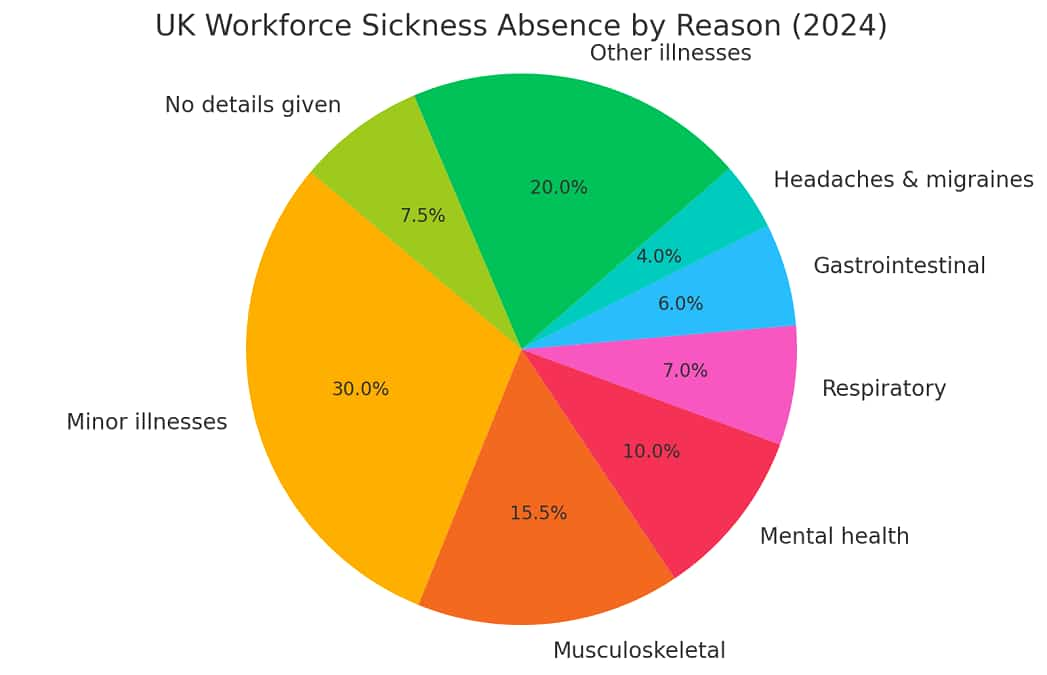The average number of workplace sickness days taken by UK workers fell in 2024, according to the latest data from the Office for National Statistics (ONS), but experts are warning that this headline improvement may conceal more troubling truths about workplace health and financial hardship.
The ONS reported that 148.9 million working days were lost due to illness or injury last year, equating to 2 per cent of total working hours. While this marks a decline of 0.3 percentage points from 2023, the average time lost per worker still stood at 4.4 days.
The data highlights that minor illnesses were the most prevalent cause of absence, responsible for nearly a third of all cases. Following closely were workplace musculoskeletal issues, which accounted for 15.5 per cent of absences. Other notable findings showed that women, older employees, part-time workers, those with long-term health issues, and public sector staff experienced higher rates of sickness absence.
Despite the reduction in the overall figure, industry experts are questioning whether the numbers reflect genuine improvement in public health or a growing reluctance among workers to take sick leave due to inadequate support mechanisms.
Amanda Walters, director of the Safe Sick Pay campaign, raised serious concerns about the pressure many employees feel to attend work while ill. She commented:
“The fall in sickness absence may seem a positive development but the figures mask the fact that far too many UK workers regularly go to work when they are too ill.
“We are amongst the least likely to take sick days in Europe as our woeful statutory sick pay system is forcing millions of people to drag themselves into work ill, risking their long-term health because they need to pay the bills.”
Ms Walters pointed out that the weekly rate of statutory sick pay remains at £118.75, which translates to approximately £3 an hour for full-time workers—far below the national minimum wage.
Her concerns were echoed by Ben Harrison, director of the Work Foundation at Lancaster University.
“Enabling people to take time off when they are sick to get better and return to work in good health is critical for a robust and successful labour market,” he stated.
“Workers feeling unable to take time to recover and recuperate can lead to health issues becoming more serious over time. This increases the risk that they might join the near record number of people already out of the labour market due to ill health.”
Mr Harrison also noted that the UK’s statutory sick pay remains significantly lower than that of most OECD countries, and revealed that nearly half (47 per cent) of UK businesses do not offer pay above the statutory minimum. As a result, many workers are being forced to choose between financial survival and personal health.
The Workers Union Says…
“The data suggests a complex landscape for workplace wellbeing, one in which a statistical improvement in sick days may not reflect better health, but instead a workforce pushed to its limits by the pressures of low pay and minimal sick support. For businesses and policymakers alike, the findings present both an opportunity and a warning: a healthier workforce requires more than just reduced absence figures it requires investment, empathy, and practical reform.”




